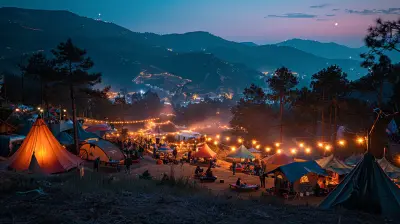How Festivals Preserve and Pass Down Cultural Identity
4 June 2025
Festivals aren’t just an excuse to eat too much, dress ridiculously, and dance like nobody’s watching (although, let’s be honest, that’s a huge perk). They serve a much bigger purpose—keeping cultural traditions alive and passing them down through generations. Imagine a world without festivals… bland, right? That’s because festivals act like living museums, keeping old customs fresh and relevant.
Let's dive into how these colorful, loud, food-filled celebrations help maintain cultural identity. And yes, expect some funny and relatable moments—because, let’s face it, festivals are often a wild mix of tradition and chaos! 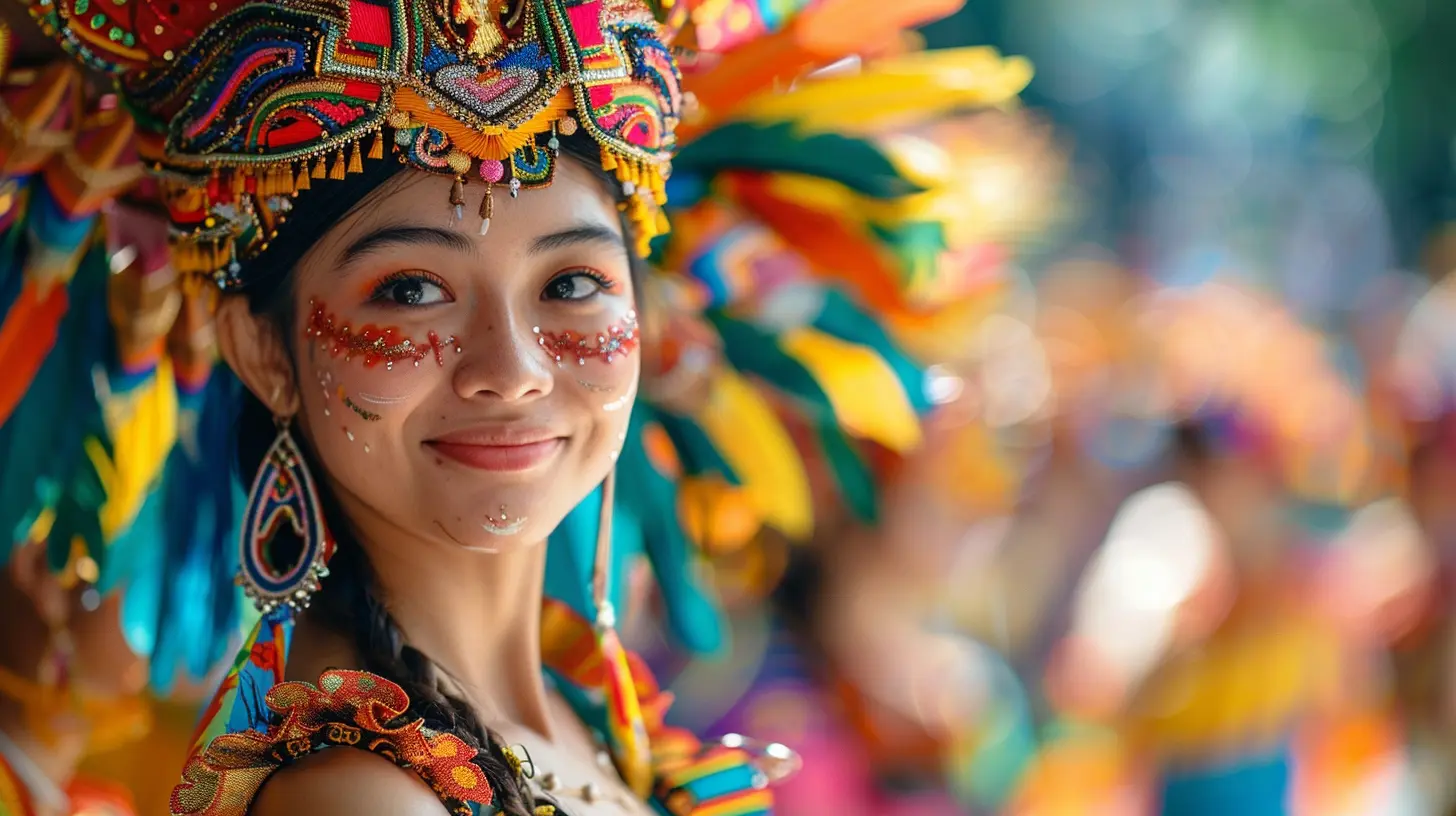
🎭 Festivals: A Cultural Time Machine
Have you ever time-traveled? No, not in a sci-fi way (unless you have a DeLorean we don’t know about). Festivals transport us to the past, letting us relive traditions that have been around for centuries.Take the Chinese New Year, for example. It’s not just about red envelopes and fireworks (though let’s be real, we all love those). The traditions—like the dragon dance, lantern festivals, and family feasts—date back thousands of years. It’s a way for each generation to connect with their roots while keeping ancestors' customs alive.
Ever been to Oktoberfest in Germany? It might seem like a beer-lover’s paradise (which it totally is), but it’s also a centuries-old tradition celebrating Bavarian culture. The Lederhosen, the folk music, and the hearty meals? They all play a role in preserving Germany’s heritage.
Festivals don’t just let us look back; they make sure ancient traditions continue to thrive. 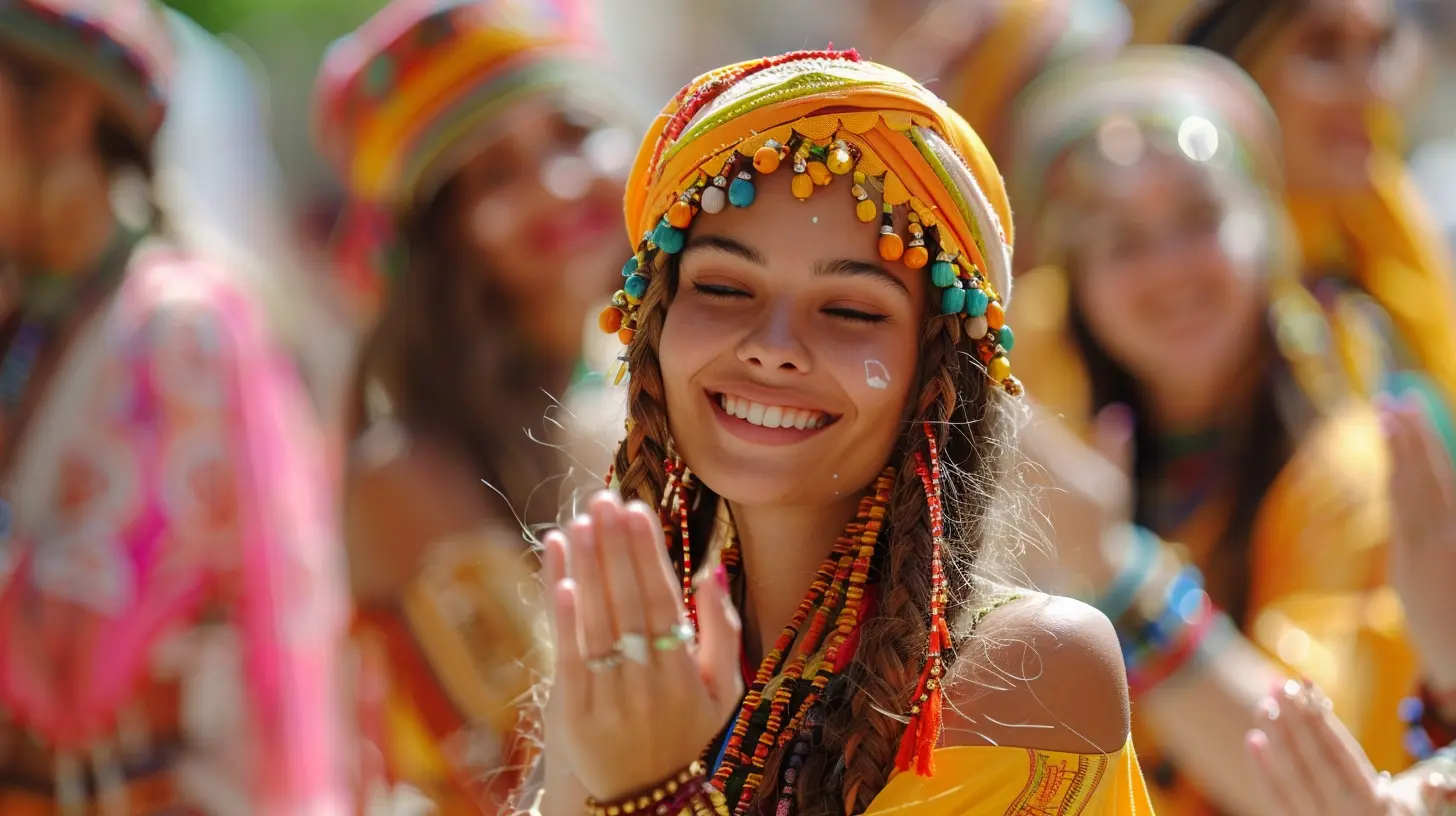
🎉 The Magic of Storytelling Through Festivals
If festivals had a motto, it would be: Keeping history alive, one crazy party at a time.Almost every festival has a story behind it. These celebrations are like giant, interactive history books—only instead of pages, you get parades, music, and food.
Take Día de los Muertos (Day of the Dead) in Mexico. While it might look like a costume party with colorful skull makeup, it’s actually a deeply symbolic celebration of ancestors. Families build altars, cook favorite meals of their loved ones, and share stories—all of which ensure that cultural traditions and family heritage remain intact.
Holi, the Festival of Colors in India, is another prime example. Beyond the epic color-throwing battles (which, let’s be real, look like the world's most vibrant paintball fight), it symbolizes the victory of good over evil. It’s a tradition deeply ingrained in Hindu mythology and storytelling, passed down for generations.
Festivals don’t just offer entertainment—they preserve cultural values and stories in a way that textbooks never could. 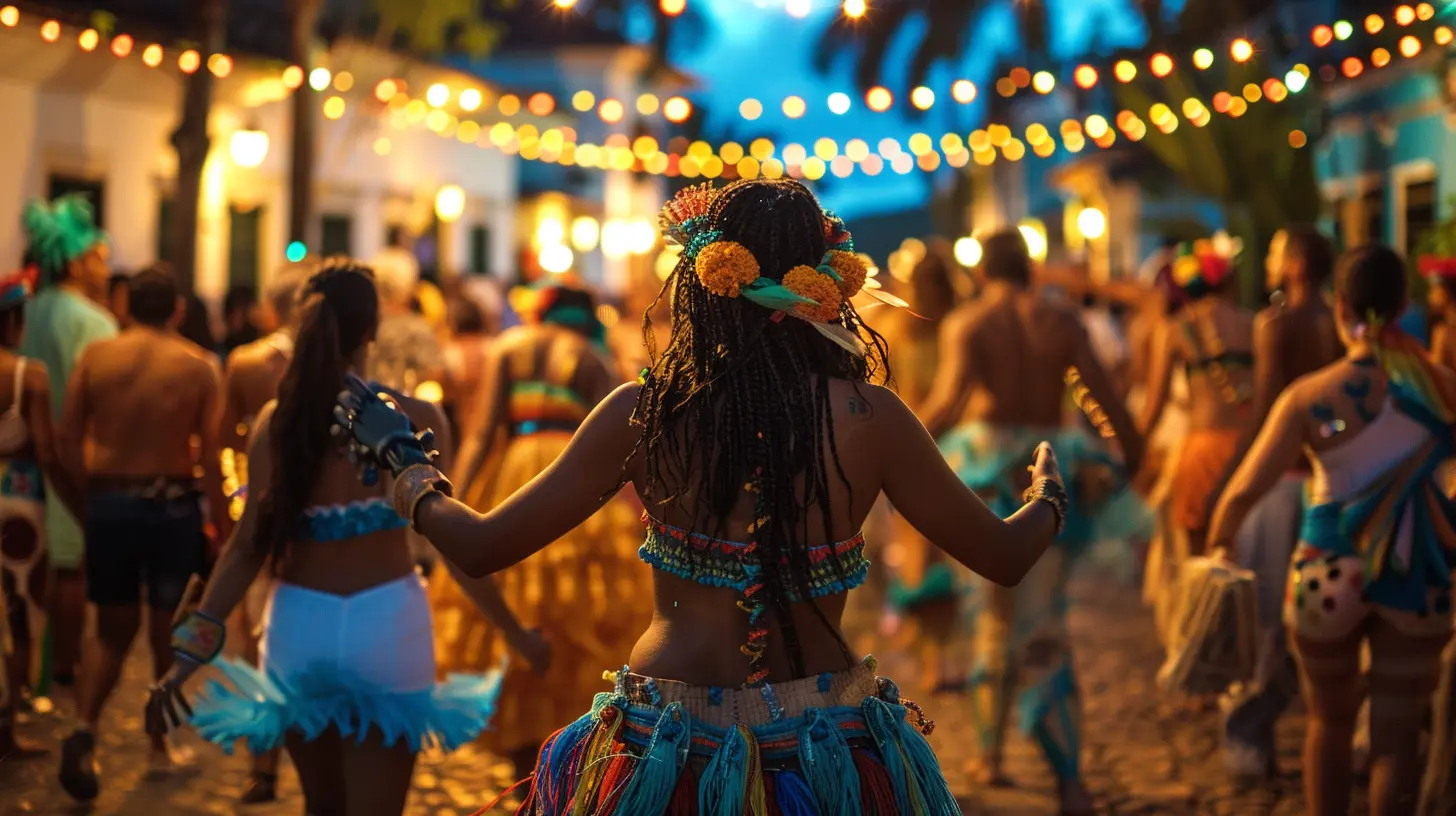
🍲 Food: The Ultimate Cultural Messenger
Let’s be honest—one of the main reasons we love festivals is the food. But have you ever stopped to think about how important these dishes are in preserving cultural identity?Every culture has its festival-specific dishes, and they’re more than just tasty treats. They carry history, symbolism, and deep-rooted traditions.
- Mooncakes during the Mid-Autumn Festival in China? They date back to the Yuan Dynasty and represent family unity.
- Tamales during Christmas in Latin America? A centuries-old cooking tradition passed down from indigenous civilizations.
- Hot cross buns during Easter? Yep, they have a historical and religious significance dating back to ancient Rome.
When families gather to prepare these festival foods, they’re not just making meals—they’re passing down stories, techniques, and cultural pride. Food is like the edible memory of a culture. 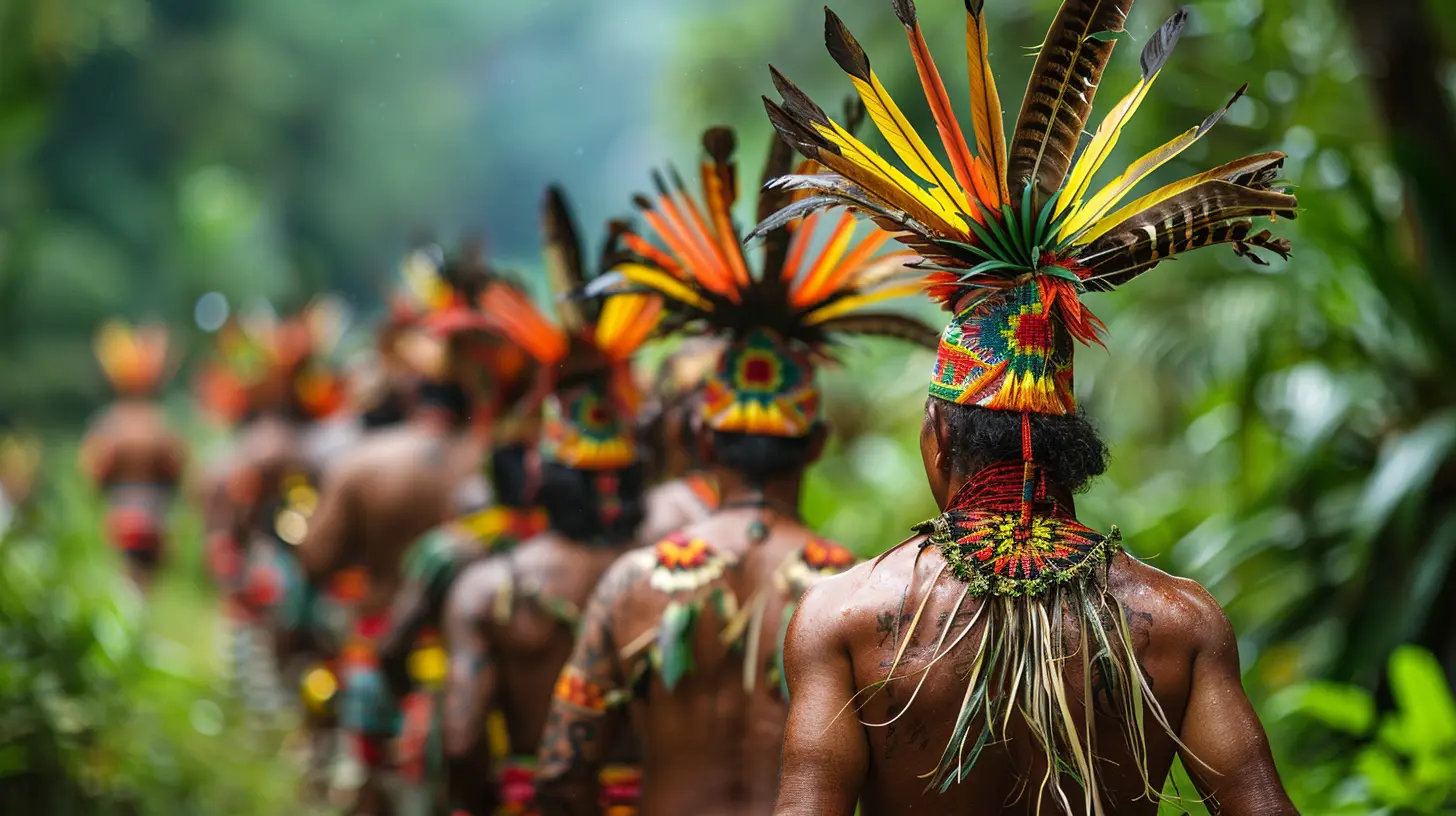
👗 Traditional Attire: Dressing Up or Dressing History?
Ever worn traditional festival attire and felt like royalty? Whether it’s a kimono during a Japanese Matsuri, a sari during Diwali, or a Scottish kilt at the Highland Games, these outfits aren’t just costumes—they're wearable history.Festival clothing often reflects centuries-old craftsmanship, regional influences, and cultural symbolism. The next time you dress up for a festival, remember: you're basically wearing a historical artifact (just a much more comfortable version).
Fashion has always been a key part of cultural identity. Festivals give people an occasion to embrace and showcase their heritage through traditional garments, ensuring that unique styles don’t fade with modern trends.
🎶 Music and Dance: The Soundtrack of Heritage
What’s a festival without music and dance? A sad gathering, that’s what.Music and dance are like the soul of any festival. They bring people together, set the mood, and, most importantly, keep cultural traditions alive.
Consider Flamenco during Spain’s Feria de Abril—it's not just about flashy footwork and fierce guitar playing. It’s a cultural heritage passed down through generations, telling the stories of Spanish history and emotions.
Or think about the powwows of Indigenous cultures in North America. These gatherings feature traditional drumming, singing, and dancing that have been preserved for centuries, offering a deep connection to ancestral roots.
Music and dance are universal languages that ensure cultural traditions don’t get drowned out by time.
🏆 Festivals as a Bridge Between Generations
Ever noticed how festivals bring together people of all ages? There’s something magical about seeing grandparents, parents, and kids all celebrating the same traditions, each adding their own touch.Festivals provide a perfect opportunity for older generations to pass down customs, songs, rituals, and recipes to younger ones. It’s like a cultural relay race—every generation takes the baton, adds their experiences, and hands it off to the next.
Without festivals, many customs might fade away as younger generations get caught up in modern life. But because festivals are fun, exciting, and engaging, traditions remain relevant. After all, who wouldn’t want to pass down a tradition that involves feasting, dancing, and having an absolute blast?
🤔 Why Should We Care?
In a rapidly globalizing world, cultures can easily blend, and while that’s beautiful, it also means that unique traditions risk fading into obscurity. Festivals act as cultural anchors, reminding people of their roots and giving them a sense of belonging.Imagine a world without Mardi Gras, Carnival, or Diwali. Pretty dull, huh? Preserving cultural identity through festivals isn’t just about history—it’s about the joy, the stories, the connections, and the shared human experiences that make life richer.
So the next time you attend a festival, whether it’s a local celebration or an international extravaganza, remember: it’s more than just an event—it’s a living, breathing piece of history. And while you’re at it, go ahead and grab that extra plate of festival food—you’re just embracing tradition!
🎯 Final Thoughts
Festivals do more than just entertain us; they keep cultural identity alive and thriving. Through food, music, dance, stories, and traditions, they ensure that heritage isn’t forgotten but celebrated.So whether you’re throwing colored powder during Holi, dancing the night away at a samba parade, or stuffing your face with mooncakes, know that you’re contributing to keeping a culture alive. And really, what better way to honor history than with a good party?
all images in this post were generated using AI tools
Category:
Cultural FestivalsAuthor:

Winona Newman
Discussion
rate this article
3 comments
Pilar Phillips
Festivals are the lifeblood of cultural identity, boldly defying the passage of time. They embody our stories, traditions, and values, ensuring we remember who we are. Embracing these vibrant celebrations isn't just about enjoying the moment; it’s about safeguarding our heritage for future generations. Let's honor and revel in our unique legacies!
June 14, 2025 at 2:39 PM

Winona Newman
Absolutely! Festivals are vital in preserving cultural identity, allowing us to celebrate our heritage while passing it on to future generations. They connect us to our roots and enrich our communities.
Georgia McLean
Festivals serve as vibrant cultural showcases, fostering community engagement and intergenerational knowledge transfer. They encapsulate traditions, beliefs, and histories, ensuring that cultural identities are celebrated and preserved amidst globalization's challenges.
June 5, 2025 at 3:05 AM

Winona Newman
Thank you for highlighting the essential role of festivals in cultural preservation and community bonding. They truly are vital for celebrating and passing down our rich traditions.
Diesel Brown
Festivals beautifully connect us to our rich heritage!
June 4, 2025 at 5:00 AM

Winona Newman
Absolutely! Festivals play a vital role in celebrating and preserving our cultural identity, fostering connections between generations.


